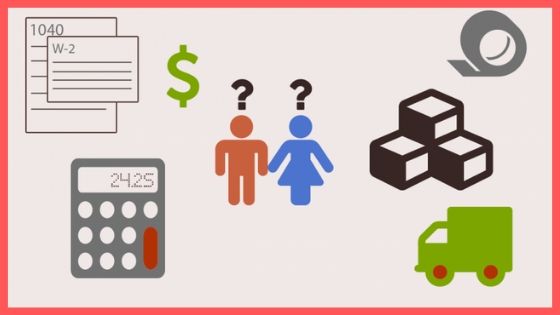I used to reside in Hoboken, New Jersey perhaps the reason why I always preferred hiring local movers. Like a few months ago, I hired local Hoboken Movers to help me move to my desired destination. You see, when I was a child my family used to move a lot and they took care of almost everything. From packing, loading to even the taxes. Until last year when I had to move cross-country and it dawned upon me that this time I will be handling everything on my own.
To be honest, everything went smoothly but the tricky part was the taxes. And the bad news is, long-distance movers do not qualify for the deduction in taxes. Interestingly, I learned a lot about state taxes and federal taxes after moving to a new city. And I am here to share what long distance movers need to know about taxes. Without further ado, let’s begin.
1. Tax Changes You Face When Moving To a New State
If you have decided to move to a new city besides hiring movers and packing your belongings, taxes are something you need to be wary of. Fortunately, tax filing remains unchanged on the federal level but it changes on the state level. You’ll have to file partial returns for each state. This also means that you need to file separate returns while you are still in the previous state. However, each state has different income tax laws. For instance, if you were moving from Washington to Texas, then taxes wouldn’t be such a big deal because these two states do not tax income.
On the contrary, it will be a big change for people who do not live in Texas or Washington. To add to your misery, some states follow the tax system designed on the federal level. This means that if you earn a handsome salary, you might be expected to pay a little more than usual. To learn everything about the income tax rates and laws about your state don’t forget to go through the IRS website. In addition to this, here is a list of states with high and no income tax rates.
States With High-Income Tax Rates
- Iowa
- Oregon
- California
- Hawaii
- Minnesota
States With No Income Tax Rates
- Wyoming
- Alaska
- Florida
- Washington
- Nevada
- South Dakota
- Texas
2. Property Taxes Will Change
I think it is obvious that you will be buying and selling properties before your final move. Now, the thing is that before buying or selling properties you have to see how it will impact your tax rates. Also, we all know that like every other taxes, property taxes also vary between jurisdictions. For instance, some states do not charge vehicle property taxes. Similarly, for local real estate taxes, the rates vary depending on the location. This is to say that, even though the average percentage cost of the house may be lower or higher, you cannot determine how much it will burden your bank account. You have to also consider the house price and examine the selling and buying process carefully.
Filing The Taxes
Now that you know taxes vary from state to state, there is one more important thing you need to keep in mind. Filing partial returns on both the federal level and state level. In my personal opinion, I know it is a complex situation, given the kind of pressure of moving and packing you already have on your plate. So, make sure you consult or hire movers in your city. Like Hoboken movers in your city. Or else movers in Jersey City or the city you reside in.

